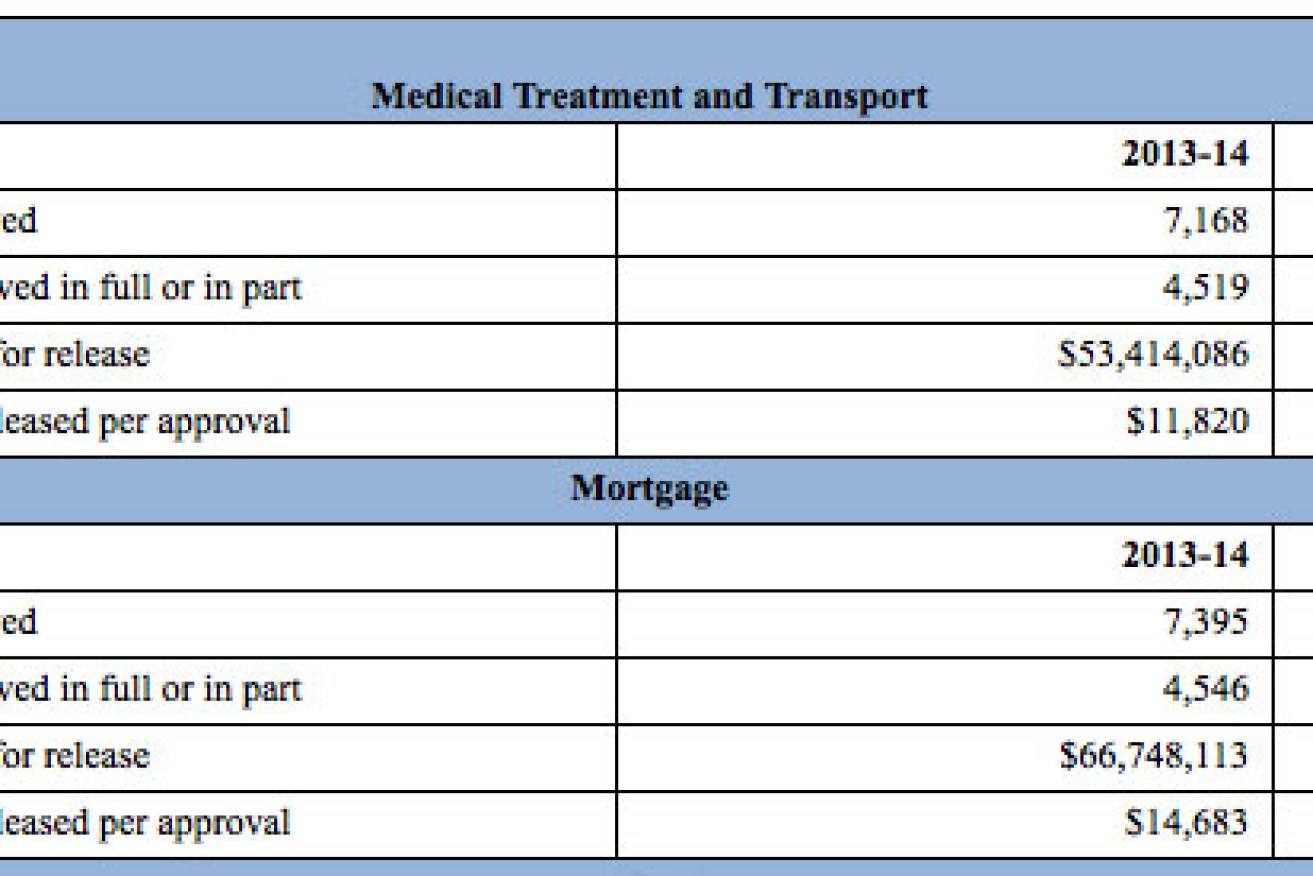Government’s early super data indicates mortgage stress easing

Supplied
The number of Australians seeking early release of superannuation cash to keep up with their mortgage repayments fell last year, according to new government data obtained by The New Daily.
As reported previously, the Department of Human Services approved the early release of almost $151 million of super cash in the year to June – up seven per cent on 2013.
However, new data collated by the Department shows that the composition of early release payments changed significantly in the 12 months to the end of June.
• More Australians trying to clear debts with early super cash
• Not topping up your super? It may not be your fault
While mortgage support is still the biggest driver of early super payments, the amount approved for release to stressed borrowers actually fell from $82.5 million in 2013 to $67 million.
Financial counsellors and community lawyers who advise disadvantaged people under financial stress believe the historically low interest rate environment may have eased mortgage servicing pressures on low-income families in the last year.
“Interest rates have come down and that has had a huge impact on the ability of people to make repayments on loans,” said Sharon Maslen, manager of the Salvation Army’s financial counselling service in South Australia.

The number of people under mortgage stress is falling. Photo: Shutterstock
Alex Kelly, a lawyer with the NSW-based Financial Rights Legal Centre, said her organisation was continuing to receive many inquiries from people under mortgage stress, but that the number had fallen recently.
“The department’s data accords with our experience since rates on home loans began falling,” she said.
The rise in overall early release payments was propelled by super members seeking special support to fund medical treatments, palliative care and funerals.
More than 4500 Australians dipped into their super to fund life-threatening health conditions – up from 3709 in 2013.
The total payments approved by the department for medical treatments blew out 40 per cent to $53.4 million from $38 million the year before.
Ms Maslen said pressure on public hospitals in Adelaide had forced many low-income earners and welfare recipients who did not have private health insurance into the private hospital system.
“When you look at the demands on public hospitals where waiting lists for some types of surgery are more than six months, patients with life-threatening conditions are using early super to pay for treatment in private hospitals,” she said.
“People with life-threatening conditions are doing anything to get surgery done as soon as possible.”
The data issued by the department also showed a rise in the amount of early super paid out to people with disabilities. The department approved $10 million of early super payments for disabled people wanting to modify their homes or cars.
Early release cash to fund funeral costs also rose slightly to $5.4 million.
The department has been responsible for assessing claims for early release super since 2011.
Final decisions for early release applications are made by the trustees of superannuation funds.

Source: Department of Human Services








